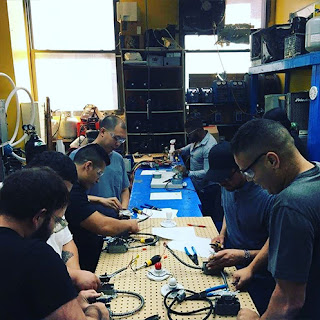How to Prepare for the EPA 608 Certification Exam?
Passing the EPA 608 exam is one of the essential parts of becoming an HVAC technician. Many aspirants worry about how hard it is to pass EPA 608 technician certification. However, passing the EPA 608 technician exam can be easy, especially if you can memorize things quickly. One of the convenient ways to pass the EPA 608 exam is to learn all the common and important questions.
What is an EPA certification?
An EPA certification, or 608 certifications, is an official recognition by the Environmental Protection Agency, or EPA, that technician is knowledgeable about the laws and regulations surrounding the use and handling of ozone-depleting substances, or ODS, like refrigerants. The Clean Air Act made EPA 608 technician certification a requirement to work in the maintenance, service, repair, or disposal of equipment like air-conditioning and refrigeration systems since these commonly contain refrigerants R-22 and R-410 A, which are ODS. There are four categories of EPA 608 certification –
Type I – Type I certification includes servicing small appliances like household refrigerants, window air conditioners, and water coolers.
Type II – Type II certification includes servicing or disposing of high-pressure refrigerant appliances. Such appliances include residential air conditioners, heat pumps, and supermarket refrigeration.
Type III – Type III certification includes servicing or disposing of appliances that use low-pressure refrigerants, like chillers.
Universal – Universal certification includes servicing or disposing all equipment covered in types I, II, and III.
Apart from EPA 608 technician certification, there are some additional certifications one can benefit from having depending on the systems and substances they work with. These include certifications –
609 technical certifications – The 609 technical certification is for technicians who work with motor vehicle air-conditioning systems or MVAC. A technician with 609 certifications is knowledgeable about the regulatory requirements and has proper refrigerant-recovery techniques for refrigerants used in automobiles.
R-410 A technical certification – The R-410 A is a refrigerant used at a much higher pressure than various other refrigerants. There are various safety issues and concerns related to R-410 A and similar other refrigerants. The technicians who handle R-410 A may need to use multiple tools and equipment, so manufacturers often prefer those technicians who handle them to have specialized certification.
How can one take EPA 608 certification test exam?
To take the EPA 608 certification exam, one must first find a test location. Calling around local HVAC supply stores or community colleges will point you in the right direction for local test locations. Depending on the testing location and study material, the fee for this exam may vary.
Who needs to be certified as an EPA technician?
Certification is required for anyone who can undertake maintenance, service, repair, or refrigerant disposal that may release ozone-depleting compounds into the atmosphere. These technicians specifically perform the following activities –
. Attaching and detaching hoses and gauges to and from the appliance to measure the pressure within the appliance.
. Adding refrigerant to or removing the refrigerant from the device.
. Any other activity that can violate the integrity of the MVAC – like small and big appliances
Apart from this, apprentices are exempted from certification requirements provided a certified EPA 608 technician closely and continually supervises the apprentice.
So, the above-mentioned is some of the information about the EPA 608 certification. If you are looking for a renowned training institute for EPA 608 certification test preparation, look no further than The Refrigeration Institute. Consult our experienced team at (212) 244-2588 for expert guidance.


Comments
Post a Comment